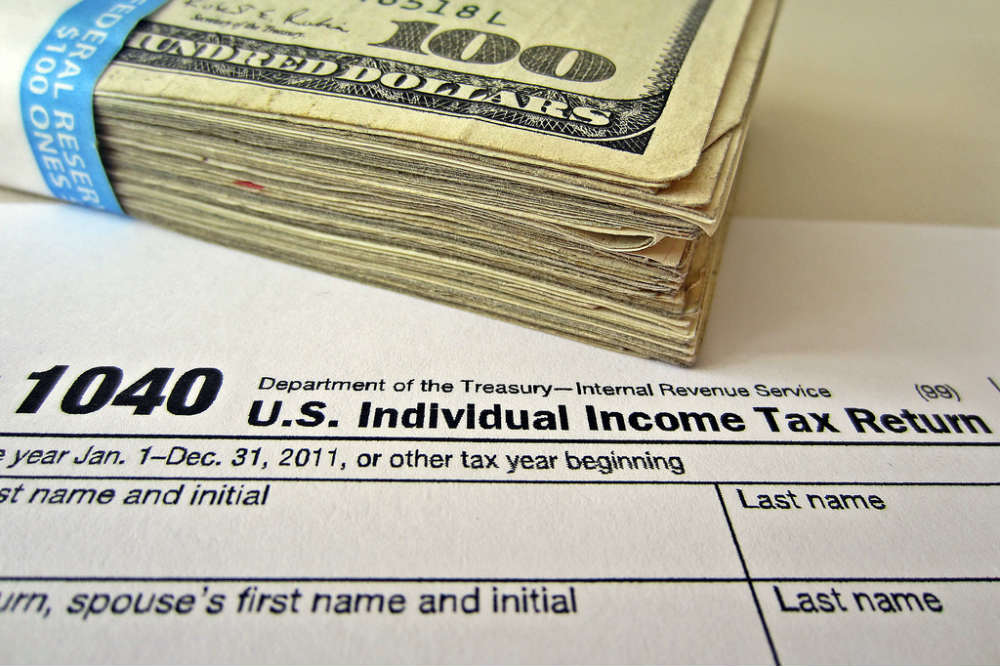A letter from the IRS might provoke a bit of anxiety but for those who receive a notice that they’ve been a victim of tax identity theft, the anxiety persists. In honor of Tax Identity Theft Awareness Week, which is fast approaching, we wanted to share some helpful information. In this blog post, I will discuss some of the signs to be on the lookout for that could indicate you’re a victim of tax identity theft as well as steps you can take to reduce your risk.
One thing is clear — no one is safe from tax identity theft, not even the lawmakers who help write the country’s tax laws. Two congressmen — Rep. Jim Renacci, R-Ohio and Rep. Jason Chaffetz, R-Utah — were both victims of tax identity theft. Renacci even testified about his experience at a hearing and introduced the Stolen Identity Refund Fraud Prevention Act of 2016, which passed the House but was never written into law.
4 Signs of Tax Identity Theft
Here are some of the common notices that could alert you that you’ve been a victim of tax identity theft:
- A letter that says more than one tax return has been filed using your Social Security number (SSN) or that the IRS has identified a suspicious return using your SSN.
- An alert that a return has already been filed using your SSN that pops up when you try to efile your return.
- A notice that you received wages you didn’t report. These could have been reported by an employer you don’t know.
- A notice saying you owe additional tax, refund offset or have had collection actions taken against you for a year you did not file a tax return.
If you suspect someone used your Social Security number to get a job or steal your refund, you should contact the IRS immediately to report the fraud. You’ll also need to send a copy of your police report and/or an IRS ID Theft Affidavit Form 14039, along with proof of your identity. There are a slew of time-consuming steps you must take if you’re a victim. If you’re a LibertyID member, a certified identity restoration specialist will mark each step off the list and restore your identity to pre-theft status, saving you hours of waiting on the phone for the IRS and the frustration of trying to wade through the detailed steps required to resolve tax identity theft.
Ways to Reduce Your Risk
The IRS shares a few tips on how to reduce your risk, including:
- Use strong passwords.
- Always use security software with firewall and anti-virus protection.
- Learn to recognize and avoid phishing emails, threatening calls, and texts from thieves posing as legitimate organizations such as your bank, credit card companies and even the IRS.
- Do not click on links or download attachments from unknown or suspicious emails.
- Protect your personal data. Don’t routinely carry your Social Security card, and make sure your tax records are secure. See Publication 4524, Security Awareness for Taxpayers, to learn more.
The Best Advice
Our final piece of advice is to sign up for an identity restoration program. While signing up for LibertyID won’t reduce your risk of becoming a tax identity theft victim — no identity theft program can do that — it will give you access to a certified trained identity restoration specialist who will fix the damage.
The bottom line is identity theft happens all the time, but what if it happens to you? Sign up for an annual LibertyID membership and you won’t have to worry about it. No matter what type of identity theft you’re facing, if you’re a LibertyID member and your identity is stolen, we will fix it. Get covered today.
Photo Credit: Money and Tax Return, 401kcalculator.org, Creative Commons Attribution-ShareAlike 2.0

